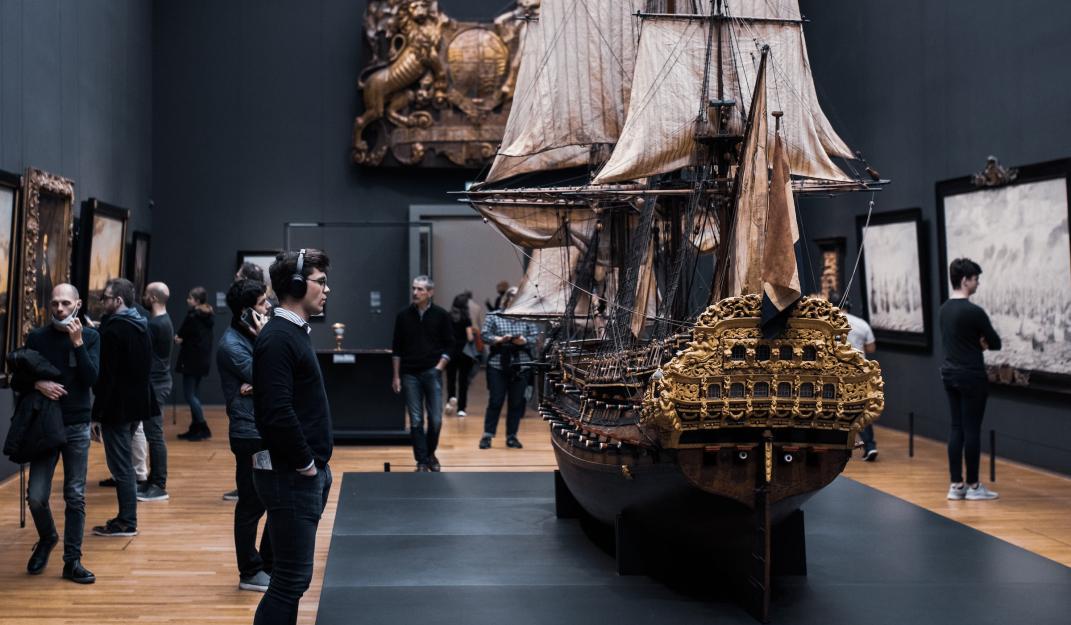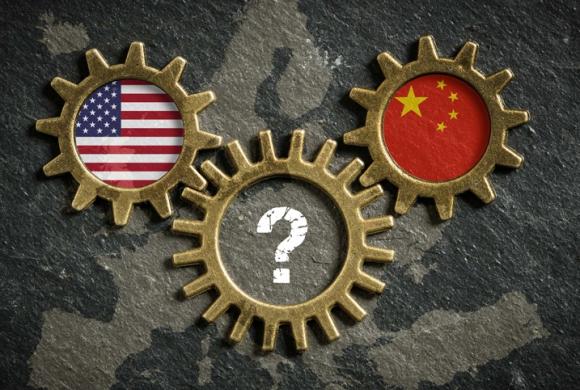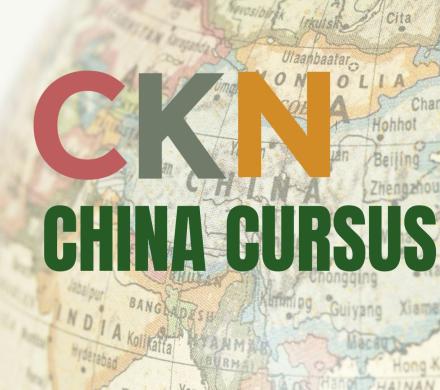The Power of Narrative: An Analysis of Research Commissioned by the Dutch China Knowledge Network

About the author
Daan Abrahams is a research intern at the Clingendael China Centre and supports the Secretariat of the Dutch China Knowledge Network (CKN) in this capacity. Daan holds an LL.B. in Rechtsgeleerdheid (Law), a BA in Chinese Studies, and an LL.M. in Public International Law from Leiden University.
The author is grateful to Marc Moquette and Ingrid d'Hooghe for their comments and suggestions.
_________________________________________________________________________________________________________________________________
This essay connects the variety of CKN reports within the framework of a strategic European narrative towards foreign audiences. The framework, which was put forward in last year’s CKN essay “Will the European hero please stand up?”, argued it was time for European leaders to develop a strategic European narrative appealing to “local audiences in regional settings”.
Change the narrative, change the game. If last year’s CKN essay on European global narrative strategy were to convey one message, this would be it.[1] China’s ascent has put European power and its global narrative of universalism on the defensive. The CKN essay argued it was time for European leaders to take matters into their own hands and “start driving those changes.” It recommended a strategic European narrative of tailor-made messages appealing to local audiences, thus substituting the habitual one-size-fits-all narrative and its claim to universal validity. The 2019 Dutch policy paper on China echoed such narrative challenge, stating that the Netherlands is working on a more appealing European story about values towards China but also, and especially, towards countries elsewhere.[2]
A strategic European narrative should answer to local grievances and aspirations, emphasise shared interests and values, and – if necessary – change local perceptions of the European Union (EU) and Europe’s way of life. To those ends, opinion research among Europe’s most essential audiences is imperative. Turning a deaf ear to local grievances and aspirations risks playing into the hands of China’s “discursive moves”. Where, for example, a grudge against (neo)colonialism thrives in politics, this feeds the aspiration towards alternative relations and ways to close the development gap with the former colonial powers. China’s messaging to foreign audiences emphasises such an alternative. Ultimately, a narrative convinces only as much as the narrator lives up to it.
This review essay explores how research commissioned by the Dutch China Knowledge Network (CKN) contributes to this narrative. The evaluation of the network itself and its overall research output lie beyond the scope of this essay. CKN was established in May 2021 under the 2019 revision of the Dutch China policy. It aims to develop government-wide knowledge and awareness of China in relation to the challenges its ascent poses at the international level and within Dutch society. It encourages joint research by government departments and has produced fifteen studies since its inception, which are the subject of this review.
China: Filling the Voids on the Edges of Europe and Catering to Anti-Colonial Sentiments in Latin America
The connection between local grievances and aspirations on the one hand, and the power of narrative on the other, is also apparent from the CKN report on China’s engagement with the six countries of the Western Balkans (WB6).[3] The report’s message to European leaders is nothing but crystal clear: If Europe does not provide a development path for the WB6, “China [...] or another influential actor will.” Indeed, the WB6 are hindered in closing the development gap with the EU as accession to it is still miles away. The standstill in EU accession is a grievance while closing the development gap with the EU is the region’s aspiration. At the same time, the Chinese helpline might be the avenue to achieve that goal after all.
Here is where the power of narrative comes into play. The report states the perceptions about China determine whether the Chinese endeavours to establish relations with the WB6 will be successful. Phrased more sharply, the success of the Chinese attempts depends on whether the image of China corresponds to the region’s needs. In the WB6, China is viewed as an “infrastructure and lending power” that meets the region’s demand for economic development. Consequently, the WB6 have warmly welcomed Chinese economic opportunities. The report contends that China’s engagement with the region has hampered the EU in spreading its standards, rules and values. While alternative (read: lower) standards than those of the EU are the basis for engagement with China, the latter is also facing various challenges and impediments that hamper “its entry, positioning and influence on the WB.” In this regard, China’s lack of interest in the region’s broader economic development and the scarcity of greenfield investments are specifically mentioned. The EU’s message to the WB6 should emphasise that partnership with the EU can provide these opportunities. To stay true to its principles, the EU should “step up its communication” in terms of “the benefits of the [EU] standards” it aims to spread. Following the CKN essay on European global narrative strategy, this message should also explain what these standards, rules, and values mean to Europe itself.
While the WB6 report argues that China’s engagement with the WB6 is impeding the EU from spreading its standards across the region, another CKN report holds this is not – or no longer – the case in Latin American and Caribbean (LAC) countries.[4] Although the grievance of western colonialism and imperialism has led LAC leaders to turn to China, China’s engagement with LAC countries has also demonstrated the worth of EU principles to civil society and these government heads. For example, suspicions of “possible corrupt practices, nepotism and [other] illicit practices” due to China’s preference for closed-door negotiations with LAC governments have demonstrated the value of transparency in business and politics. Other examples include the outcry over Chinese linkages to land grabbing and environmental pollution, showing the importance of indigenous peoples' rights and environmental protection. Therefore, the report recommends that the EU sticks to its value-based way of “doing business and politics” and “positively” demonstrates its value to LAC countries. Being mindful of understandable grievances of colonialism, this should be done in a decolonised manner. More than anything, LAC countries are looking for “equal and reciprocal partnerships”.
Travelling to the north-western edges of Europe, a CKN report observed that China utilised “the strategic void the EU left behind” in Iceland and Greenland.[5] As for Iceland, the vacuum arose in 2015 when the island country formally withdrew its application for EU membership after it could not agree to EU fishing quotas. Greenland’s void emerged when it left the European Community in 1985. In both instances, China seized the opportunity to grow its presence, opening a polar research institute in Iceland and investing heavily in Greenland’s natural resources and infrastructure. The report highlights the EU’s need to enhance its efforts to face the strategic challenges China’s presence in the Arctic poses. As the partnership with China mainly revolves around seeking opportunities to develop Greenland’s economy, the paltry sum the EU is now paying Greenland will not suffice. At the same time, as global political relations are increasingly “value-driven”, a one-sided focus on material interests will not suffice either.
From Zooming In to Zooming Out
To return to the Western Balkans, the previous section appears to look into the region as a “stand-alone”. However, China’s interest in the area is related to a broader context of global ambitions. In this regard, two observations can be made. First, the Chinese endeavours in the WB6 are part of the worldwide operating and all-encompassing Belt and Road Initiative (BRI). Second, observers argue that the Western Balkans are “only relevant [to China] due to their proximity to the European Union” and that initiatives in the region are aimed at “gaining a foothold” on the EU’s verge.
Just as economic efforts by China in the WB6 should mainly be considered in light of its proximity to the EU, so should “public diplomacy efforts” by the Chinese Embassy in the Netherlands be seen against the background of US-China rivalry.[6] The Dutch contribution to last year’s report by the European Think-tank Network on China (ETNC) confirms that China’s soft-power approach to the Netherlands has grown beyond mere “local-niche logic” but is integrating “global-political logic” as well. Put differently, while China’s engagement with the Netherlands traditionally revolved around “subnational-level governments or specific industries”, its approach now increasingly relates to global-political events. This geopolitical turn began with the 2018 US-China trade war and continued during the 2020 COVID crisis. Amidst US criticism of China’s management of the COVID-19 virus, China’s facemask diplomacy was running at full speed. Part of this charm offensive was the mobilisation of the Chinese diaspora to counter “the increasingly negative public sentiment towards China”, as noted in another ETNC report.[7] At the same time, a CKN report on China’s diaspora influencing remarks that at the start of the pandemic, the Chinese population in the Netherlands was confronted with “overt anti-Chinese expressions and acts.”[8] The report argues the Dutch government should do more against racist acts to prevent the Chinese population from alienating from Dutch society. This alienation is reinforced by China’s cultural narrative, connecting diaspora communities to the “Chinese people at home”.
Strategic Autonomy: Necessary to Protect European Values
The proposed European global narrative is more than just an appealing story to local audiences. It also has a defensive element to it. As the essay on European global narrative strategy explains, the “costs of strategic autonomy ought to be explained as the collective sacrifices needed to protect European values.” These sacrifices are linked to dependencies on countries, including China. Indeed, since the publication of the Netherlands' China strategy in May 2019, Dutch reliance on China’s supply chains has been a “hot topic”.[9]
As the call for reducing one-sided dependencies became louder, so did the research in such areas. While one CKN report addressed Dutch dependence on China for critical raw materials and associated technologies,[10] another addressed the risks of Chinese standardisation activities vis-à-vis critical raw materials.[11] The latter report argues that setting standards has become essential in the growing geopolitical fight over raw materials and technologies. In this regard, technical standards are specifically important as they “offer a venue for fostering dependence.” Regarding digital standardisation, another CKN report takes a different perspective.[12] It argues against “excessive alarmism” as, in general terms, evaluating “the challenges China presents in standardisation” is a mission impossible. Considering the “complexity of the institutional landscape for standardisation”, policies aiming to mitigate China-related risks should focus on strengthening “competitiveness and efficacy.”
The strong relationship between the goals of strategic autonomy and protecting European values is also stressed in a CKN report on Dutch hi-tech cooperation with China in the sectors of semiconductors, photonics and medicine development.[13] This report notes that Chinese government policies are geared toward establishing “one-sided strategic dependencies and unwanted technology transfer”. It argues that where this dependence becomes substantial, it risks curtailing independent political decision-making or even the functioning of the Dutch government. However, and perhaps most importantly, the report also reminds us of the possible consequences of a drastic and sustained decrease in cooperation with China. China’s market, investments, knowledge base and talent are required for the Netherlands to sustain its productivity and competitiveness. Another CKN report comes with a similar conclusion, arrived at by taking a different research approach and focusing on the analysis of networks and the role of the Chinese Communist Party in economic policies and management.[14] It argues the presence of Chinese firms and other actors “make important contributions to the Dutch economy” and concludes that, as long as they act in conformity with Dutch law and do not pose a danger to Dutch interests, communist party members or activities can be considered not a threat but rather a “normal aspect” of Chinese presence in the Netherlands.
Conclusion
A broader approach and method could arrive at a more definitive review of CKN’s research results and its contribution to knowledge formation and development of Dutch China policies. This essay establishes that the CKN research, initiated by very distinct Dutch policy departments, converges on the wisdom that the EU would do well to both better showcase its standards and values and adapt its narrative to different audiences. Showing the value of the European way of doing business and politics remains the essential base. At the same time, a complex narrative balance must be struck on the risks and benefits of cooperating with China. Overstating the benefits is naïve, considering the undeniable rivalry in the political purposes for state and market and their underlying value base, which is in part antithetical to the European way of life and what we wish to showcase. Overstating the risks, however, could turn into a self-fulfilling prophecy. Europe is between a rock and a hard place. It needs to clarify its terms and convince its splintered target audiences and influencers, some of whom are more crucial than others. Europe has no alternative but to clearly narrate to itself and others what it stands for and wants to become. Or it will dissolve into what others have in store for her.
_________________________________________________________________________________________________________________________________
[1] T. Dams and M. Sie Dhian Ho, Will the European hero please stand up?, Clingendael Institute, March 2021, available at www.chinakennisnetwerk.nl.
[2] Ministerie van Buitenlandse Zaken, Beleidsnotitie ‘Nederland-China: een nieuwe balans’, p. 52, available at www.tweedekamer.nl.
[3] W. Zweers et al., China and the EU in the Western Balkans: A zero-sum game?, Clingendael Institute, August 2020, available at www.chinakennisnetwerk.nl.
[4] B. Hogenboom et al., China’s economic and political role in Latin America, CEDLA, August 2022; B. Hogenboom et al., China’s economic and political role in the Caribbean and Central America, CEDLA, August 2022; and B. Hogenboom, M. Baud, and D. Steinhöfel, China's engagement with Latin America and the Caribbean: Geopolitical challenges and the role of the EU, CEDLA, August 2022, all available at www.chinakennisnetwerk.nl.
[5] T. Dams, L. van Schaik, and A. Stoetman, Presence before power: China’s Arctic strategy in Iceland and Greenland, Clingendael Institute, June 2020, available at www.chinakennisnetwerk.nl.
[6] T. Dams and X. Martin., “Taking the stage, but missing the audience: China’s soft power in the Netherlands”, in China’s Soft Power in Europe: Falling on Hard Times, eds. T. Dams, X. Martin, and V. Kranenburg, ETNC, April 2021, available at www.chinakennisnetwerk.nl.
[7] T. Dams, F.P. van der Putten, and M. Sie Dhian Ho, “Netherlands: Tough questions, stronger answers in the face of Covid-19 and a more audacious China”, in Covid-19 and Europe-China Relations: A country-level analysis, ed. J. Seaman, ETNC, April 2020, available at www.chinakennisnetwerk.nl.
[8] F. Pieke, China’s invloed en de Chinese gemeenschap in Nederland, LAC, March 2021, available at www.chinakennisnetwerk.nl.
[9] X. Martin, “The Netherlands: Still assessing Dutch dependence on China”, in Dependence in Europe’s Relations with China: Weighing Perceptions and Reality, eds. J. Seaman et al., ETNC, April 2022, available at www.chinakennisnetwerk.nl.
[10] I. Patrahau et al., Securing Critical Materials for Critical Sectors Policy options for the Netherlands and the European Union, HCSS, December 2020, available at www.chinakennisnetwerk.nl.
[11] I. Patrahau et al., Standards for Critical Raw Materials Strategic standard setting in China, the EU and the Netherlands, HCSS, December 2020, available at www.chinakennisnetwerk.nl.
[12] J. Voo and R. Creemers, China’s Role in Digital Standards for Emerging Technologies – Impacts on the Netherlands and Europe, LAC, May 2021, available at www.chinakennisnetwerk.nl.
[13] Clingendael China Centre, Technologische samenwerking met China: Risico’s voor en belangen van Nederland op de terreinen halfgeleiders, fotonica en medicijn-/vaccinontwikkeling, Clingendael Institute, October 2021, available at www.chinakennisnetwerk.nl.
[14] F. Pieke and N. de Graaff, Chinese Influence and Networks among Firms and Business Elites in the Netherlands, LAC, May 2022, available at www.chinakennisnetwerk.nl.
China Knowledge Network
The Dutch China Knowledge Network (CKN) is a network established to involve China experts and disseminate knowledge within the government of the Netherlands and beyond.Our key task is to connect various angles of research and events to better understand China’s motives, policies and vision to develop more effective policies and better advise social partners. The secretariat of the knowledge network has been assigned to think tank Clingendael together with LeidenAsiaCentre. They will function primarily as ‘knowledge brokers’, matching the supply and demand of knowledge.




